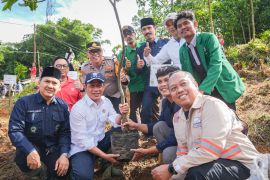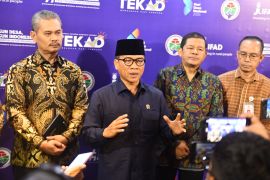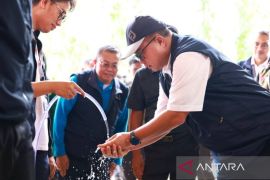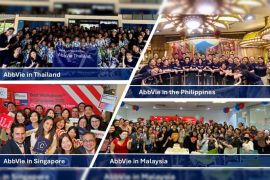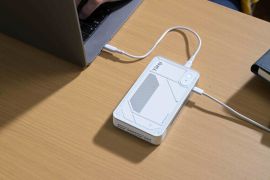Above all, the blind people in the country want respect, esteem, affection and recognition that they, too, are citizens with full civil and human rights.
Indonesia has one of the highest incidence of blindness in the world with an estimated 3.6 million people visually impaired and between two and three million affected by cataract.
In the light of this, Indonesian Blind Union (Pertuni) Advisory Board Chairman, Bob Hasan, has said he would continue to cooperate with employers to seek more job opportunities for blind people.
"We encourage the employers to provide employment or partner with the blind people as they seek raw materials for their business," Bob Hasan remarked during a "White Cane Parade" to mark the 50th anniversary of Pertuni in Solo, Central Java, on Tuesday.
He noted that Pertunis mission is to fight to enhance access to public spaces so that the blind can enjoy public services independently and safely.
Besides, the Indonesian Blind Union also fights to make information and communication more accessible so that the blind can enjoy equal access to information and communication through various forms of media, including Braille, audio format, big letters (fonts) for those with low vision, and computer technology.
Pertuni also fights for wider employment opportunities for the blind, whether through special recruitment, quota system, or through the open employment market.
The union also undertakes advocacy measures to ensure that blind peoples rights as citizens are protected, and any laws found discriminatory towards the blind may not be formulated.
Its mission is also to raise the communitys and the governments awareness about the rights of the blind as citizens and to encourage them to fulfill these rights.
Hasan pointed out that some companies like Sido Muncul and others want to foster visually impaired people to help them become agribusiness entrepreneurs.
"if that happens, the visually impaired people will be able to become prosperous and independent, and not remain dependent on others," he said, adding that the blind people must not be forced to become just masseurs but must have more options.
"The visually impaired people should be able to live a better life than even those who can see," Hasan went on.
He said if the visually impaired people continue to become only masseurs, they will be unable to compete with modern massage parlors that offer better services.
Therefore, Bob Hasan noted that public awareness about the lives of blind people and the challenges they face must be improved since Indonesia has a large number of such individuals.
"What the blind need is better welfare," Hasan said.
Meanwhile, Pertuni Chairperson Aria Indrawati expected the local government to seriously collect data related to the number of blind people in different areas.
"Our message to the local governments is that they should seriously collect data to find out the actual number of blind people in every region," she said.
According to her, her party has been relying on the Ministry of Healths estimates that put the number of blind people at 1.5 percent of the total population of Indonesia.
"Indonesias total population is 250 million people. The number of blind people may be 3.75 million," Indrawati affirmed.
She also encouraged the local governments to empower the visually impaired people.
She said the White Cane Parade, in which the blind participants will travel through nine cities, has already covered four cities of Surabaya, Tuban, Semarang and Solo.
Pertuni has conducted a number of activities, including blood donation campaigns to collect 1,000 blood units donated by the blind, and organized free cataract surgery campaigns. It also oversaw the Lion Club giving away white canes to the blind to commemorate its 50th anniversary.
The nine-day White Cane Parade that began on January 23 will last till January 31, 2016. From Solo, the parade will proceed to Yogyakarta, Purwokerto, Garut and Bandung, and will end in Jakarta.
Further, Indrawati affirmed that Pertunis key programs include making public services more accessible for the blind people, and expand and create employment opportunities for them.
Pertuni supports the provision of public services that the blind are able to access, including health, education, housing, banking, and transportation systems.
It also supports efforts to diversify employment opportunities for blind people, increase the quality and quantity of training conducted by the vocational rehabilitation centers for the blind, to ensure that such training is based on what the market needs, and to increase the provision of facilities accessible to the blind workforce.
Pertuni also encourages banks and other financial institutions to initiate a credit scheme for the blind people in order to help them undertake entrepreneurial activities.
(O001/INE/B003)
EDITED BY INE
(T.O001/A/KR-BSR/B003)
Reporter: Otniel Tamiendael
Editor: Aditia Maruli Radja
Copyright © ANTARA 2016

